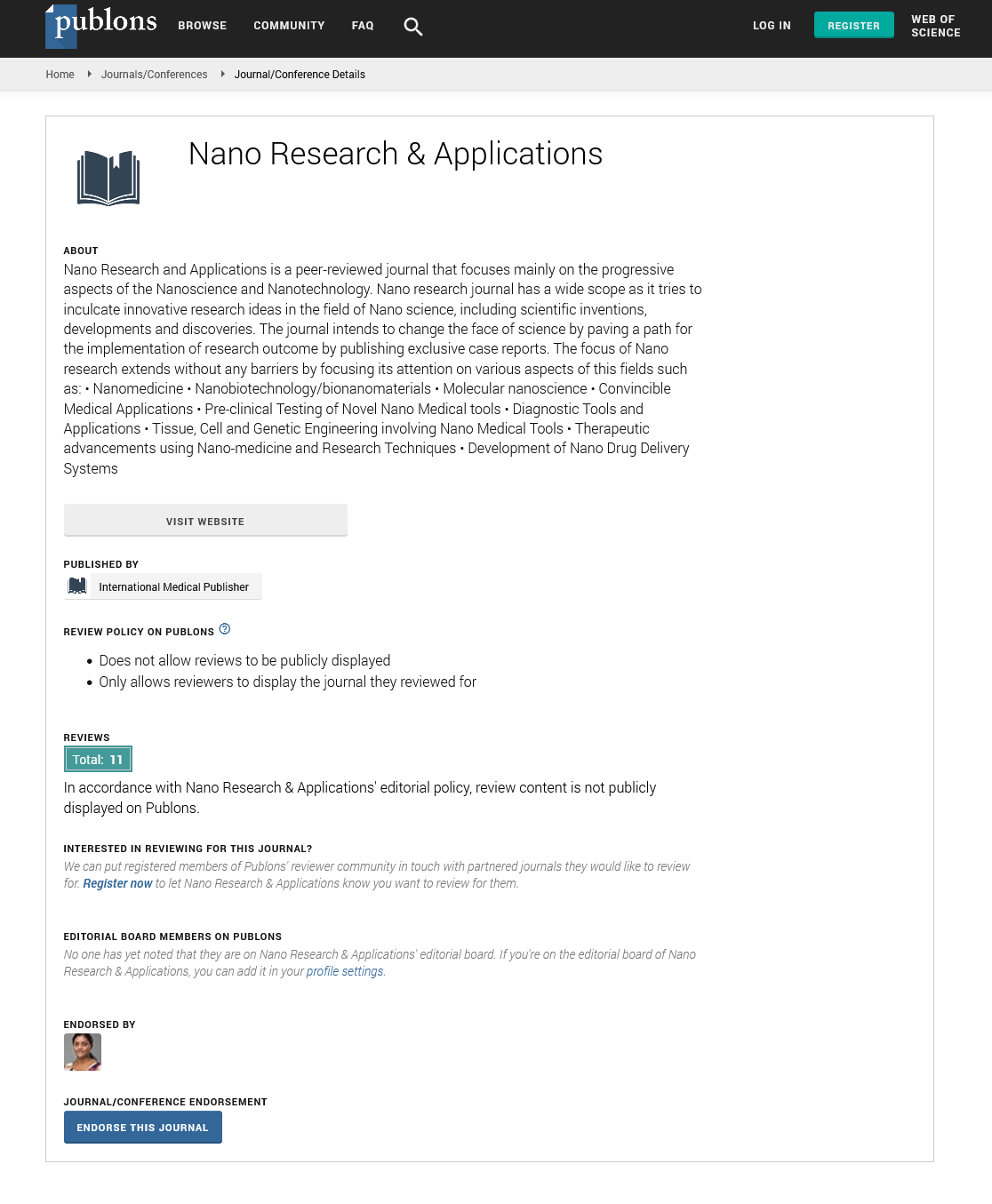ISSN : 2471-9838
Nano Research & Applications
Microemulsion routes to nanomaterials of controlled size and toxicity
Joint Event on 25th Nano Congress for Future Advancements & 12th Edition of International Conference on Nanopharmaceutics and Advanced Drug Delivery
August 16-18, 2018 | Dublin, Ireland
M.Worsley, A.Sireetharan and P.A.Sermon
Brunel University, UK
Posters & Accepted Abstracts: Nano Res Appl
DOI: 10.21767/2471-9838-C3-015
Abstract
The extent to which NPs are bound onto or into macro matrices by say chemical glues [1] affects their availability and healthenvironmental impact. The toxicity of NPs has an important impact on human health and the environment. This can from their high surface: volume ratio (i.e. their particle size), but also their morphology, degree of aggregation and concentration [2], and because of all these they interact uniquely with their surrounding environment. Often their toxicity increases as their size decreases, possibly due to their (i) ease of penetration of cell walls, (ii) higher solubility and vapour pressure (via the Kelvin equation), (iii) higher reactivity with larger number of defects and lower number of nearest neighbours (N) and (iv) low stability metastable structures. Their higher toxicity in seen in reference [3]. It ought to relate to particle size effects seen in other spheres of chemistry, e.g. catalysis of structure -sensitive and –insensitive reactions over small metal particles noted at Brunel in the 1980s [1]. For example growth of Ru NPs can at intermediate sizes produce B5-sites. Fractal analysis [4]; surface geometries can overshadow surface chemistry. Fractal analysis is a tool for investigating these complex structures. If the surface has n sites of area σ then the surface area A=nσ. Here we consider the opportunities provided by non-ionic surfactant (NIS)- stabilized water-in-oil microemulsions to produce designer nanoparticles of metals, oxides, perovskites and nanocomposites. In this area France has a long heritage [5].
Biography
E-mail:
Paul.Sermon@brunel.ac.uk
Google Scholar citation report
Citations : 387
Nano Research & Applications received 387 citations as per Google Scholar report
Nano Research & Applications peer review process verified at publons
Abstracted/Indexed in
- Google Scholar
- China National Knowledge Infrastructure (CNKI)
- Directory of Research Journal Indexing (DRJI)
- WorldCat
- Publons
- Secret Search Engine Labs
- Euro Pub
Open Access Journals
- Aquaculture & Veterinary Science
- Chemistry & Chemical Sciences
- Clinical Sciences
- Engineering
- General Science
- Genetics & Molecular Biology
- Health Care & Nursing
- Immunology & Microbiology
- Materials Science
- Mathematics & Physics
- Medical Sciences
- Neurology & Psychiatry
- Oncology & Cancer Science
- Pharmaceutical Sciences
